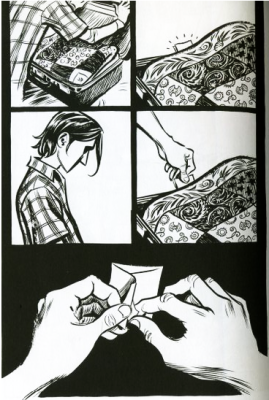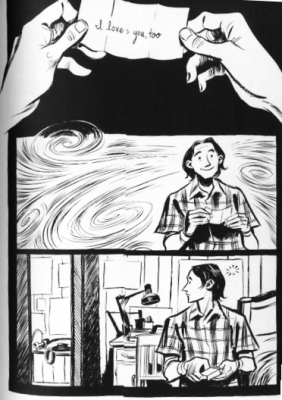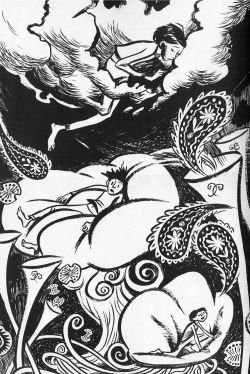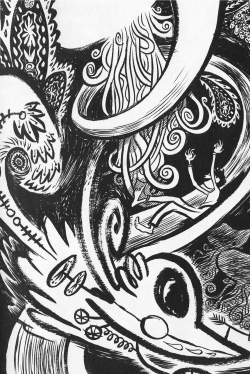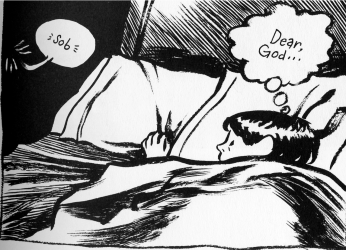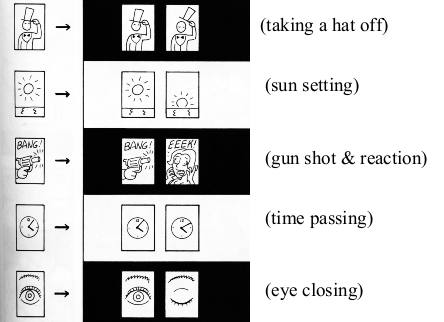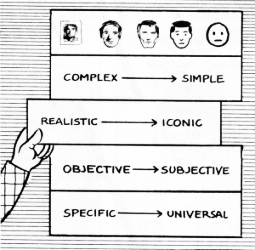Remember my last post, on the 28th, about how I'd just combine both days into one? And I said it was because I wanted to do the rest of Blankets justice? Yeah, somehow I thought we were supposed to finish the novel for Monday. Not true. Not what it says on the syllabus. I swear, though that I heard Spencer/our prof say, on Wednesday, "finish Blankets for Monday!" So I did. And didn't need to. I mean, it was good, and I'm glad to be through it, but I feel like an idiot for not posting on Monday now. Oh, well. On with the show, I guess.
I don't have much to say about McCloud. I've read it before, which I think I mentioned (new age cinema class, yeah?), so there aren't any new and/or brilliant thoughts leaping out at me. Mostly I think it's entertaining, but that it's largely self-explanatory. I've only read one series of actual comics, and I'm not even finished with that (part 4 of 6 right now). Comics are too short, too fleeting, too fragmented. I know McCloud discusses different forms of media, but since it's in the form of reading a comic... I think you understand.
I actually like Raina's character, an unpopular opinion. I think she's interesting and more realistic than other characters. We see her flaws and her perfections. She carries so much on her; taking constant care of her family and trying to take care of herself. At her age, 18(ish), she can't possibly be expected to take care of Craig, too. Also, it seems like Craig wouldn't let her. Craig idealizes (and idolizes) Raina. He twists his beliefs about lust/passion to make what they're doing "okay" in God's eyes. (Actually, that says more about Craig's fading belief and his willingness to break away from what he's been spoon fed.) All the same, Craig wants Raina to be this perfect angel, a goddess even, and she's just a kid, too.
This novel started out about Craig and Phil, and that theme continues, makes the story what it is. They are two completely different people, but that common thread of "family" is there. Phil takes everything more relaxed. He keeps drawing, finds someone he loves, and stays light-hearted. Craig doesn't seem to be able to do that until he moves out and leaves his Bible behind.
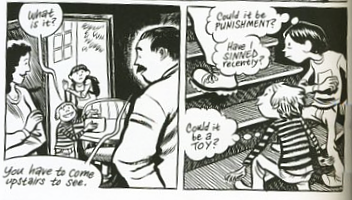
[pg 250 from Blankets]
These two panels are a great example of how different the brothers are, even as children. Their parents have a surprise, which Phil accepts, but Craig's just scared.
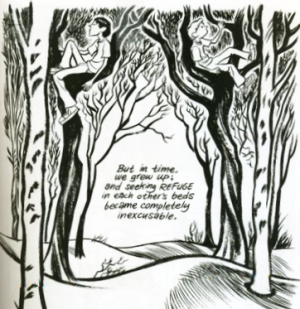
[pg 459 from Blankets]

[pg 459 from Blankets]
The clear separation between them is shown and said beautifully in this image. And it's so true. As we get older, we do everything alone. When we're young, we bathe together, dress together, and sleep together. When we're older (high school+), we do these things with select others, the ones we choose to spend our time and privacy with.
The best thing, I think, about Blankets, and some graphic novels in general, is the ability to get so much across with pictures and little words. The next few panels are all great uses of no dialogue, yet an entire idea is portrayed with ease.
The best thing, I think, about Blankets, and some graphic novels in general, is the ability to get so much across with pictures and little words. The next few panels are all great uses of no dialogue, yet an entire idea is portrayed with ease.
[pg 488-9 from Blankets; Craig finding Raina's note]
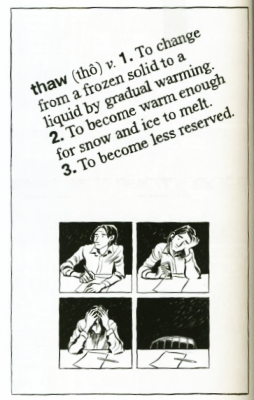
[pg 510 from Blankets; Craig trying to write to Raina, or even trying to draw. Mostly trying to "thaw."]
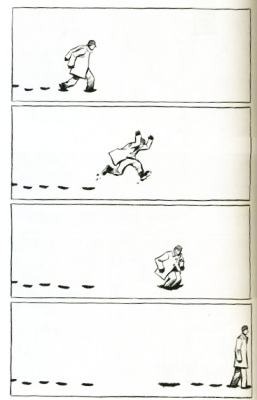
[pg 580 of Blankets (almost the end); Craig making a mark, even if it doesn't last forever]

[pg 510 from Blankets; Craig trying to write to Raina, or even trying to draw. Mostly trying to "thaw."]

[pg 580 of Blankets (almost the end); Craig making a mark, even if it doesn't last forever]
Like my group was discussing a week ago, about how graphic novels make you imagine a story sometimes, or just words. As opposed to regular novels, which make you imagine the pictures. When I read an all-words book, it's like a movie in my head-- always has been. When I read Blankets, I fill in the words. Not many, because it's a quiet, spare sort of story, but some. I think of things that describe the snow in the last panels, for instance. Or I supply the verbs that are only shown.
The epilogue gave a nice closure, by the way. It wrapped up Craig's religious doubt and his ability to move on with his life. Past high school, past his parents' house, past the Bible, past Raina. It was far more hopeful than all the other pages combined, but not too much so. I believed that everything had changed, and that it'd work out for all the characters involved.
And that's Blankets, I guess.
Side note: If anyone was wondering, I wasn't in class Monday due one-part to illness and one-part to an impending show. See, I woke up feeling awful, and I knew I had to drive up to Chicago that afternoon and last all through a concert and driving again, so I fell back asleep through class. I suck, I know.
The epilogue gave a nice closure, by the way. It wrapped up Craig's religious doubt and his ability to move on with his life. Past high school, past his parents' house, past the Bible, past Raina. It was far more hopeful than all the other pages combined, but not too much so. I believed that everything had changed, and that it'd work out for all the characters involved.
And that's Blankets, I guess.
Side note: If anyone was wondering, I wasn't in class Monday due one-part to illness and one-part to an impending show. See, I woke up feeling awful, and I knew I had to drive up to Chicago that afternoon and last all through a concert and driving again, so I fell back asleep through class. I suck, I know.
